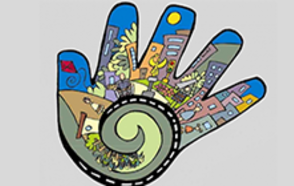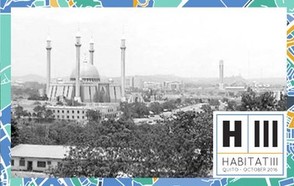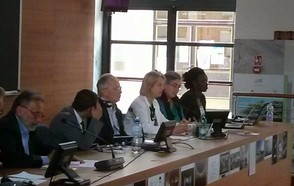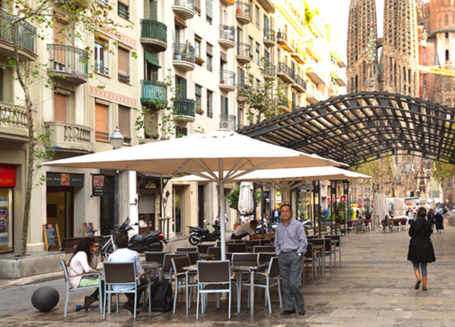
Source: www.habitat3.org/barcelona
On 4 and 5 April, the City of Barcelona hosted one of ten Thematic Meetings to develop inputs to the New Urban Agenda. The meeting in Barcelona focused on public space as a tool for guaranteeing the right to the city and democratizing social, economic, political and cultural relationships in urban areas.
In the opening plenary, UCLG Secretary General, Josep Roig, pointed out that the creation and management of public spaces is usually the responsibility of local governments. At the same time, he emphasized the importance of involving all urban actors in reshaping cities, saying “we need to create the city together” and that “public spaces must be co-created between citizens, local governments, civil society and private sector”. He called for a New Urban Agenda that leaves no one behind and argued that cities can share knowledge to build a bottom-up agenda, based on local experiences.
The Habitat III Thematic Meeting on Public Spaces enjoyed active participation from representatives of local governments and civil society over two days. UCLG committees co-organized two side events in the framework of the sessions in Barcelona.
Public Space: the role of local governments
On 4 April, the UCLG Committee on Urban Strategic Planning and UN Habitat Nairobi held a side event on the role of local governments in creating and maintaining public spaces.
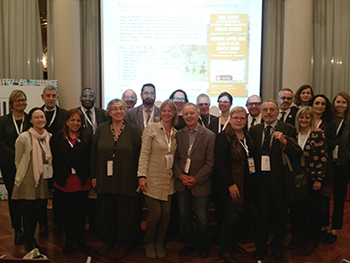
The event was an opportunity for local and regional governments to share and discuss the role and vision of local governments with regard to public spaces. The session saw participants from Durban, Porto Alegre, the Province of Barcelona and Bogotá share their experience of governing public spaces and of peer-to-peer learning initiatives on this issue.
The UCLG Committee on Urban Strategic Planning has spent two years sharing knowledge between cities on the importance of public spaces. As the Committee co-chair from Durban, Puvendra Akkiah, said, “cities make public spaces but public spaces make successful cities.” Akkiah pointed out that local governments are responsible for defining public spaces and involving local communities in the policy-making process.
The Committee co-chair from the City of Porto Alegre, Cézar Busatto, argued that “strong urban governance is crucial when we talk about public spaces,” adding that local governments often lack resources to carry out their responsibilities in this area. Busatto concluded by highlighting that 2016 represents a historic opportunity to put cities at the centre of the global agenda at Habitat III.
Rights of homeless people / street dwellers: what place in the New Habitat Agenda?
on 5th April, the UCLG Committee on Social Inclusion, Participatory Democracy and Human Rights (CISDP), the Global Platform for the Right to the City, the UN High Commission for Human Rights, Habitat International Coalition and the Global Taskforce of Local and Regional Governments organized a side-event on the place of homeless people in the New Urban Agenda.
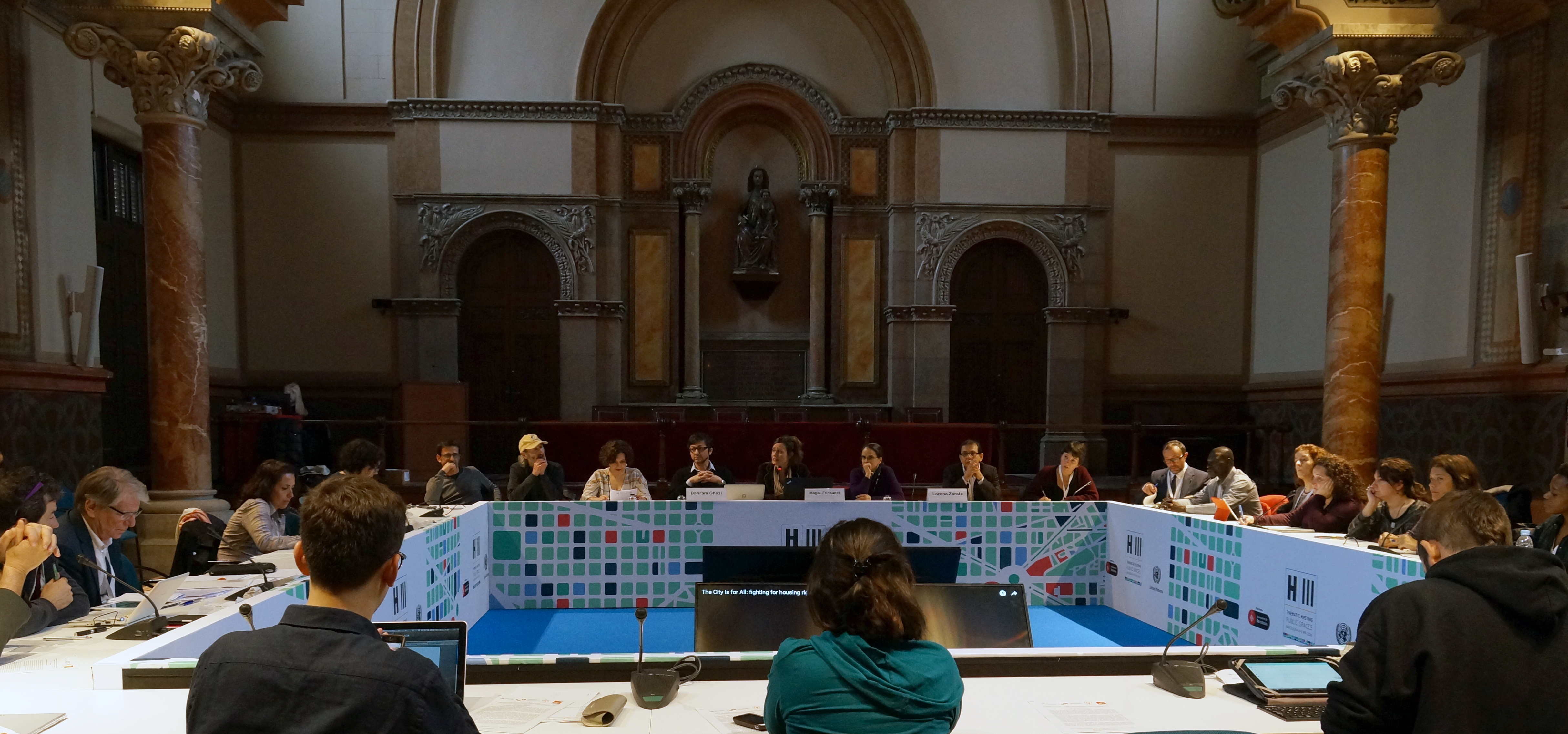 Representatives of the cities of Barcelona and Bogotá explained how they are acting to address homelessness in their communities through a perspective of human rights and social justice. Deputy Mayor of Barcelona for Social Rights, Laia Ortiz, argued that cities should defend the social function of housing in the face of speculation, and highlighted the particular barriers faced by migrants in accessing employment and housing in Spain.
Representatives of the cities of Barcelona and Bogotá explained how they are acting to address homelessness in their communities through a perspective of human rights and social justice. Deputy Mayor of Barcelona for Social Rights, Laia Ortiz, argued that cities should defend the social function of housing in the face of speculation, and highlighted the particular barriers faced by migrants in accessing employment and housing in Spain.
President of Habitat International Coalition, Lorena Zarate, argued that the New Urban Agenda must reflect the voices of the people and that policy recommendations related to homelessness must be based on the concerns and priorities of those directly affected.
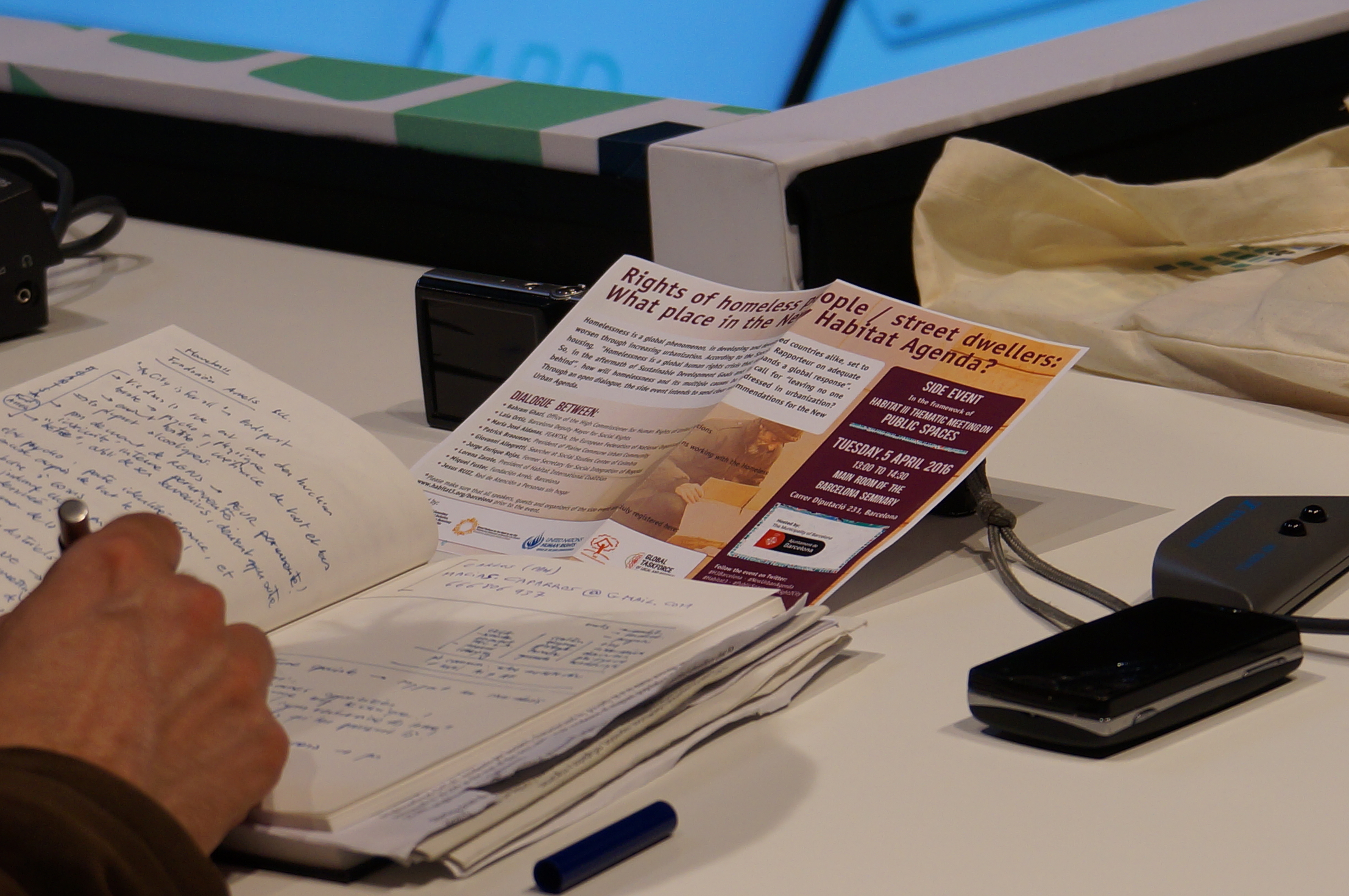
The representative of the Office of the High Commissioner for Human Rights of United Nations, Bahram Ghazi, called for a commitment to end homelessness by 2030, while President of Plaine Commune and CISDP co-President, Patrick Braouezec, called for an end to the criminalization of poverty and for the right to housing to be guaranteed for all.
The meeting resulted in a declaration (in Spanish) of recommendations for the New Urban Agenda on the rights of homeless people in the New Urban Agenda.
The Barcelona Declaration for Habitat III
The result of the Thematic Meeting, the Barcelona Declaration, calls for the democratization of cities through public space at Habitat III.
The Declaration is based on four pillars: public spaces as an agora of civic life and social interaction, the role of streets and public transport in reducing car use and improving sustainable mobility, public spaces as places where economic activity can be democratized and local production and consumption promoted, and affordable, adequate and sustainable housing as a human right.
For more info:











